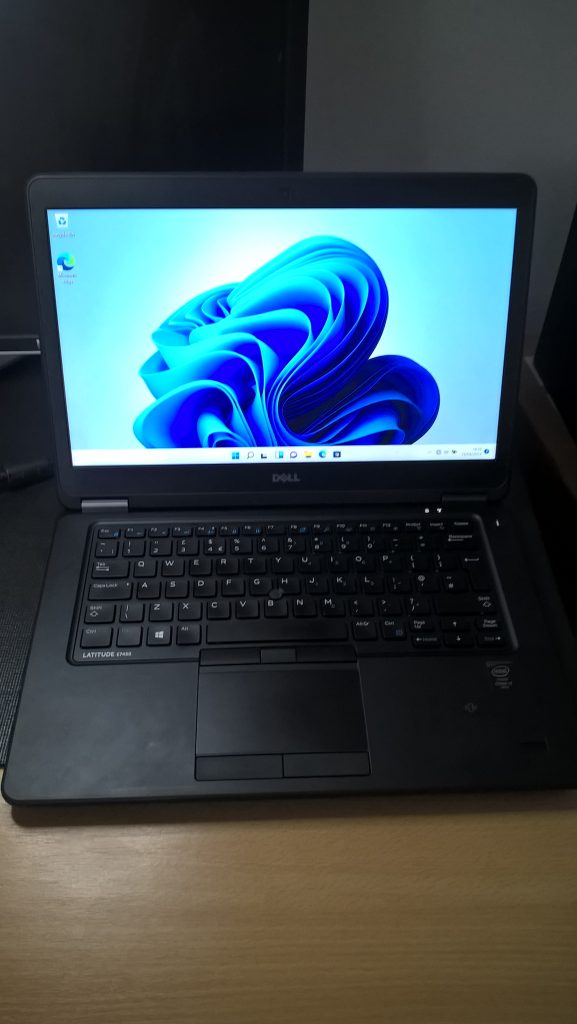Troubleshooting Computer Freezing Issues: Understanding the Causes and Solutions
If you have ever encountered your computer freezing up unexpectedly, you’re not alone. It’s a frustrating experience shared by many users, but it can also be alarming, especially when components like a GPU (Graphics Processing Unit) are involved. In this blog post, we’ll dive deep into the potential causes of computer freezes, specifically addressing the scenarios where a black screen appears, games freeze, and other symptoms like the appearance of unexpected overlays, such as chess games. We’ll go through what could be causing these issues, with special attention to a setup featuring an AMD Radeon RX 560 GPU.
What Does It Mean When Your Computer Freezes?
Understanding System Freezes
A system freeze occurs when your computer becomes unresponsive. This can happen for a variety of reasons, including Software glitches, hardware failures, or overheating. When your system is frozen, it often requires a hard reboot to regain functionality, and this can lead to data loss or corruption if you were in the middle of an important task.
Common Symptoms of Freezing
- Black Screen: This is particularly concerning as it usually indicates a failure in communication between your GPU and monitor, or a systemic problem that could range from power supply issues to Software incompatibility.
- Loss of Signal to Monitor: This typically indicates that the GPU has become unresponsive or is encountering an error.
- Unexpected Pop-ups or Overlays: In your case, the appearance of a chess game feature could be linked to Software conflicts or even malware if it’s not a program you consciously installed.
Problems Associated with AMD Radeon RX 560
The AMD Radeon RX 560 is a mid-range graphics card aimed predominantly at budget-conscious gamers. While popular for its price point and performance, it’s important to recognize that no piece of hardware is free from failure. Below are some common issues specific to the RX 560 that might contribute to system freezes.
Overheating
One of the primary reasons for unexpected freezing, particularly when gaming, can be overheating. If your GPU is experiencing high temperatures, it might throttle performance or shut down to prevent damage. You can monitor GPU temperatures using tools like MSI Afterburner or HWMonitor. Normal operating temperatures for most GPUs are between 60-80 degrees Celsius under load.
Preventive Measures:
– Ensure your case has good airflow.
– Clean dust from fans and vents periodically.
– Consider upgrading your cooling solution with aftermarket GPU coolers or case fans.
Driver Issues
Outdated or corrupted drivers can lead to instability. The AMD Radeon RX 560 relies on specific drivers that manage its functionality. If your drivers are outdated or there is a bug, the results can be catastrophic, including system freezes.
Solution:
– Visit the official AMD website and download the latest drivers for your RX 560.
– Consider using a tool like Display Driver Uninstaller (DDU) to completely remove old driver versions before reinstalling the latest drivers.
Power Supply Problems
A problematic power supply unit (PSU) can lead to instability with your GPU, especially when playing graphically intensive games. If your PSU is not providing enough power or if it is failing, it could lead to black screens and freezing. For the RX 560, a PSU of at least 400W with a good rating is recommended.
Signs of PSU Problems:
– Random restarts or shut downs.
– Unresponsive peripherals.
It may be worthwhile to check if your PSU is functioning properly using a power supply tester, or by swapping it out temporarily if you have access to another compatible unit.
Investigating RAM Issues
Another common culprit behind system freezes is Random Access Memory (RAM) malfunctions. Faulty RAM can lead to data corruption and system instability. If your RAM isn’t functioning correctly, your system can freeze unexpectedly.
Symptoms of RAM Failure
- Frequent Blue Screen of Death (BSOD) errors.
- Inability to run memory-intensive applications or games.
- Random reboots.
Testing Your RAM:
– Use Windows Memory Diagnostic Tool or a utility like Memtest86 to conduct thorough testing on your memory.
If errors are detected during these tests, you may need to replace your RAM modules.
Software Conflicts
Sometimes the problem lies not with hardware, but with the software. Applications running in the background can interfere with game performance or the overall stability of your system.
Malware or Viruses
Malicious software can sometimes masquerade as legitimate applications or can create unexpected overlays, such as the chess component you mentioned. It is crucial to ensure your system is free of malware.
Solution:
– Run a complete antivirus scan using Malwarebytes or a similar tool.
– Ensure your operating system is up to date and secure.
Conflicting Applications
If you have recently installed new programs, they may conflict with your existing software or drivers. Consider uninstalling any recent software to see if the freezing issue resolves.
Game-Specific Issues
Given that your issue crops up during gaming, it’s essential to consider whether the problem lies within the games themselves.
Game Settings
If your game is set to a high detail level, it may be straining your GPU. Try lowering the in-game graphics settings to see if that stabilizes your performance.
Compatibility
Ensure the games you are trying to run are compatible with your system specifications. Sometimes updates to games or new patches can lead to instability, particularly if a game is poorly optimized.
Additional Troubleshooting Steps
Performing a Clean Boot
A clean boot allows you to start Windows with a minimal set of drivers and startup programs, which helps eliminate software conflicts.
- Open the System Configuration tool (msconfig).
- On the General tab, select the Selective startup option.
- Uncheck the Load startup items box.
- On the Services tab, check the Hide all Microsoft services box and then click Disable all.
- Restart your computer.
After performing these steps, check if the freezes persist. If they do not, this indicates a conflicting application or service as the likely culprit.
Monitoring System Performance
Using monitoring tools can help identify if a specific component is causing performance problems. Software like MSI Afterburner provides detailed statistics on GPU temperatures, usage, and clock speeds, while software like CPU-Z can help monitor the CPU and RAM.
Conclusion
Dealing with a computer that frequently freezes is undoubtedly frustrating. In situations like yours—where you experience freezes, black screens, and game performance issues—it’s important to systematically identify and resolve the underlying problems.
In examining potential causes ranging from GPU issues (specifically revolving around your AMD Radeon RX 560), RAM integrity, software conflicts, and power supply functioning, you can develop a targeted troubleshooting approach. Each issue has specific signs and solutions, and while it may take time to diagnose the precise factor at play, remaining patient and methodical is crucial.
Remember not only to take action based on your findings but also incorporate preventative measures, including regular updates and maintenance for your system. With these considerations in mind, you should be able to restore stability to your computer and enjoy seamless computing and gaming experiences without interruption.
Share this content:




Response
Hello there,
I understand how frustrating computer freezing issues can be, particularly when they interrupt important tasks or gaming sessions. Let’s go through some actionable troubleshooting steps based on your post.
Diagnosing Hardware Issues
First, addressing overheating is key. Consider using MSI Afterburner to monitor your GPU temperatures during gaming. If temperatures exceed 80 degrees Celsius, it might be time to clean your GPU and ensure your case has proper airflow.
For driver issues, download the latest drivers for your AMD Radeon RX 560 from AMD’s official site. Using Display Driver Uninstaller can help remove remnants of old drivers, which could be causing system instability.
Power Supply and RAM Testing
Given that you’re experiencing freezing, I recommend checking your power supply unit (PSU). Make sure it’s rated at least 400W and